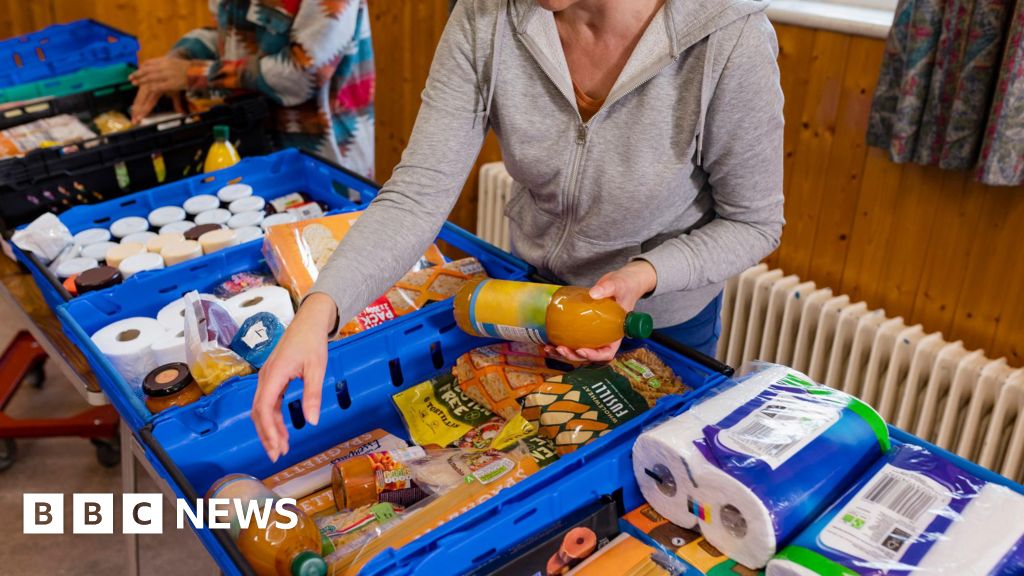ARTICLE AD BOX
By Tom Espiner
Business reporter, BBC News
Image source, Getty Images
Prisons are facing difficulties recruiting enough officers amid a surge in job vacancies, a union has said.
This comes as job adverts have soared to a record high in the run-up to Christmas, according to recruiters.
Driving instructors, prison officers and forklift truck drivers are amongst the jobs in highest demand, the Recruitment and Employment Confederation (REC) said.
Meanwhile demand for construction roles dropped due to supply chain problems.
Prisons were among the employers with the most demand for staff in late October and early November, REC data suggested, with adverts for prison officer rising 13%.
The Prison Officers Association (POA) union said prisons are facing severe recruitment difficulties, with "staff are voting with their feet and leaving" after a recent pay review, POA assistant general secretary Mick Pimblett said.
The prison service is "close to breaking point" in the run-up to Christmas, he added.
The POA listed Berwyn prison in north Wales as an example - 134 prison officers have left over the past three months.
There has been an increase in violence and self-harm among prisoners, and violence directed at prison officers, after coronavirus restrictions on prisoners mixing were lifted, said Mr Pimblett.
Due to crown courts processing cases again after postponements from coronavirus lockdowns and people being convicted, the number of prisoners is reaching capacity, putting more strain on the system, he added.
A HM Prison Service spokeswoman said: "Vacancies across the estate have been stable for six months and these figures include recruitment to our brand new prison, HMP Five Wells, which will open in the new year."
In October, the HM Prison Service announced that all staff earning less than £24,000 will receive a £250 pay rise, and all staff yet to reach the top of their pay band will continue to receive progression pay of up to 5%.
'Pent-up demand'
Image source, Getty Images
Vacancies for driving instructors saw the biggest jump, the REC data suggested, rising by about a third.
An REC spokesman said that pent-up demand from the pandemic for driving lessons and tests was likely to be behind the rise.
Karen Bransgrove, general manager of the Driving Instructors Association (DIA), said she had not noticed more adverts, but there was a lot of demand for tests and lessons.
"There is a huge backlog of tests," she said, adding that people could not learn to drive for 18 months during the pandemic so "naturally there's pent-up demand". She added that the number of instructors had also fallen.
"Lots of people took early retirement or dropped out [of driving instruction] due to the pandemic," Ms Bransgrove said.
Loveday Ryder, chief executive of the Driver Vehicle and Standards Agency (DVSA) said it was doing "all we can" to provide as many tests as possible services get back to normal.
"I know learners will be keen to take their test now, but it is important that candidates are properly prepared and don't rush to take it," she stressed.
"With more than half of candidates failing, and demand currently extremely high for tests, learners should only take their test only when they are confident they can pass."
This would prevent a further backlog of tests and lengthy waits for retests.
'Brexit hit'
Image source, Getty Images
The REC figures also suggested a sharp rise in vacancies for forklift truck drivers.
There is a chronic shortage of HGV drivers in the UK, which the logistics industry has blamed on factors including Covid and Brexit.
There is also a shortage of forklift truck drivers, which the UK Warehousing Association said was also linked to Brexit.
Clare Bottle, the association's chief executive, said that prior to Brexit, 34% of forklift truck drivers were EU nationals, but now many had gone back to their home countries.
Driver pay went up between 20-30% because of the labour shortages that followed, she said, which was unsustainable for warehousing businesses, the majority of which were small to medium-sized.
These businesses were already operating on thin margins, with 60-70% already taken up by staffing costs.
In the short term, those businesses had put prices up for their retailer customers to survive, but Ms Bottle said those price rises could ultimately be passed onto consumers, adding to inflationary pressures.
In the longer term, the industry needed to attract more younger people and women, she said.
Ms Bottle added that warehousing was "dominated" by older people, mainly men: "We've got an image problem that we need to tackle."
A government spokesperson said: "We are closely monitoring labour supply and working with sector leaders to understand how we can best ease particular pinch points. Similar challenges are being faced by other countries around the world.
"We want to see employers make long term investments in the UK domestic workforce instead of relying on labour from abroad. Our Plan for Jobs is helping people across the country retrain, build new skills and get back into work.
"The government encourages all sectors to make employment more attractive to UK domestic workers through offering training, careers options, wage increases and investment."
Image source, Getty Images
Supply chain squeeze
Job adverts surged in many parts of the country between 25 October and 7 November, the REC data suggested, but in some sectors there was a sharp fall in demand.
During the pandemic the UK construction industry has boomed, driven by factors including more house sales during the stamp duty holiday and an increased appetite for home improvements.
But Covid has also seen a global squeeze on supply chains, with the costs of building materials rising rapidly.
The REC's chief executive Neil Carberry said adverts for construction jobs saw a drop-off last week as supply issues "constrained the industry's ability to work to capacity".
Adverts for painters and decorators were down more than 17%, while demand for roofers, plasterers, bricklayers and carpenters also fell.
The Federation of Master Builders said the drop in adverts "may be indicative of the overall cooling off of the market, following a 24-year-high in construction activity earlier in the year as lockdown restrictions eased".
Brian Berry, chief executive of the Federation of Master Builders, said: "Small, local builders are also facing lengthy delays, with 89% having to press pause on work because of skills and materials shortages.
"These [REC] figures could suggest that builders are unwilling or unable to take on more work while skills and materials are running short, causing uncertainty when planning for new jobs."

 3 years ago
59
3 years ago
59








 English (US) ·
English (US) ·